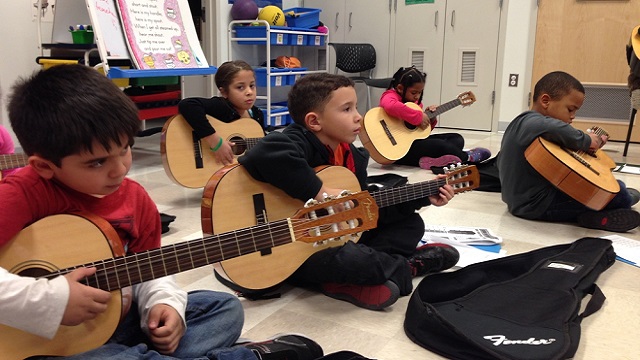Learning a musical instrument can slow brain ageing
According to studies, learning music can slow brain's ageing making an older musician's response to speech as efficient as a young non-musician
Studies have often proven that music has greater effects on the brain. It helps with mood, stress and triggers other sensory areas of the brain. Meanwhile, a new study has found that learning a musical instrument can actually help keep the brain young.
According to the research, learning a musical instrument can slow down brain ageing. The study conducted on the brains of musicians and non-musicians both young and old revealed that playing an instrument can help the brain stay “sharp, young, and focused.”
Published in the journal Science Advances, scientists from the Department of Psychology, University of Chinese Academy of Sciences, Beijing, described that long-term musical training could delay and even counteract the natural and age-related decline in the ability to listen and keep the mind young.
The ‘cognitive function’ of the brain is a broad term that refers to the mental processes involved in acquiring knowledge, manipulation of information, and reasoning. This includes perception, memory, learning, attention, decision-making, and language abilities.
For example, the brains of older musicians can match the brains of young non-musicians in identifying audiovisual syllables even under noisy conditions.
In the era where people are ageing prematurely, studies have shown that there are healthy ways of ageing and making sure that the brain captures knowledge in a healthy way while growing older.
According to the findings, learning music benefits in audiovisual speech-in-noise- the ability to understand spoken words with background noise. This advances the processing of the brain and helps it preserve its youth-like representations in the sensorimotor regions (cognitive development) of the brain.
The study claims that one of the most common age-related cognitive deficits is trying to understand speech in noisy circumstances. This is why, older musicians have enhanced central auditory processing functions and preserved cognitive abilities in comparison to older non-musicians. In short, their brain functions as actively as a young adult.
Apart from that, learning music improves the neural specificity of young adults, developing their speech representations and hearing abilities.




 Kalinga AI
Kalinga AI